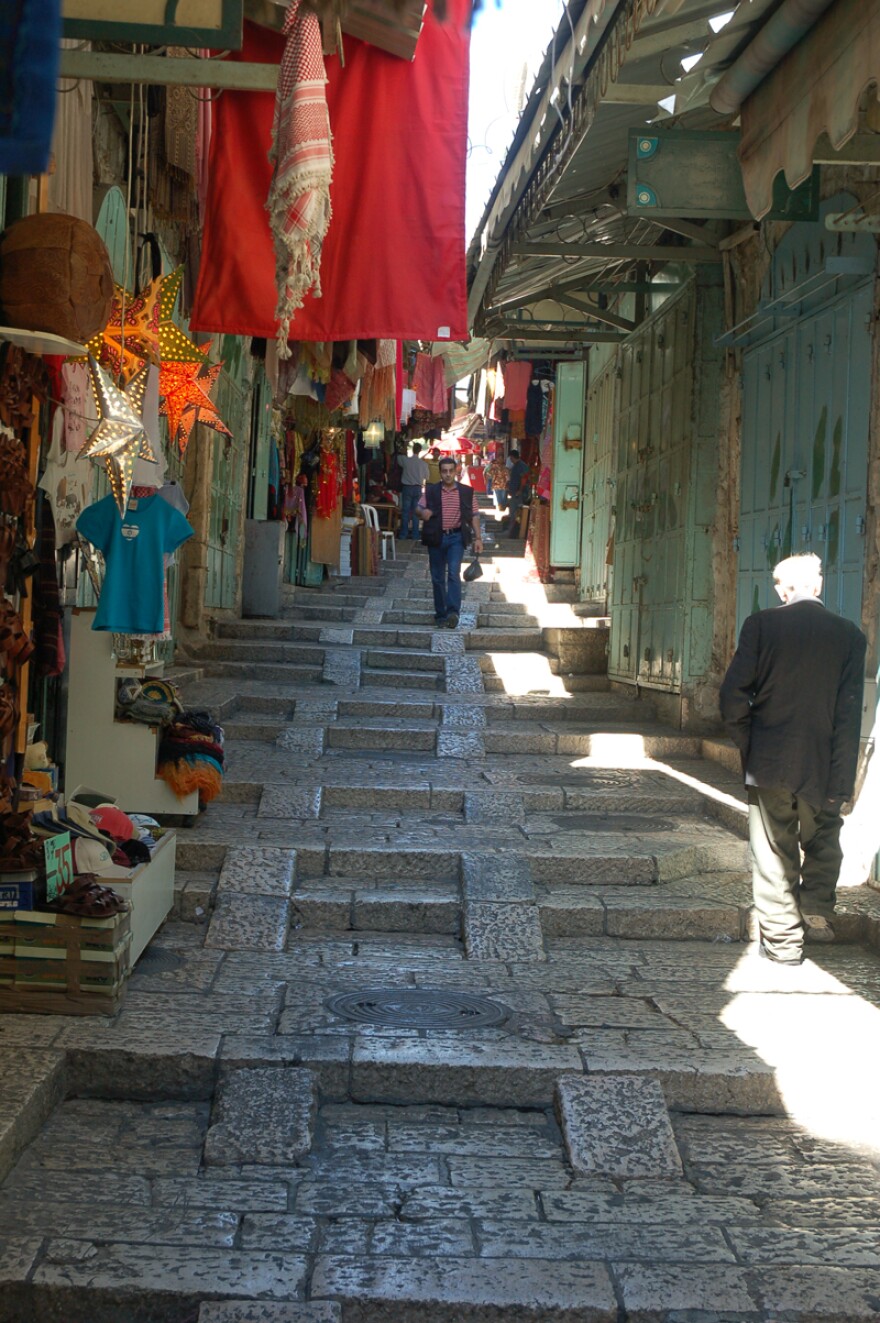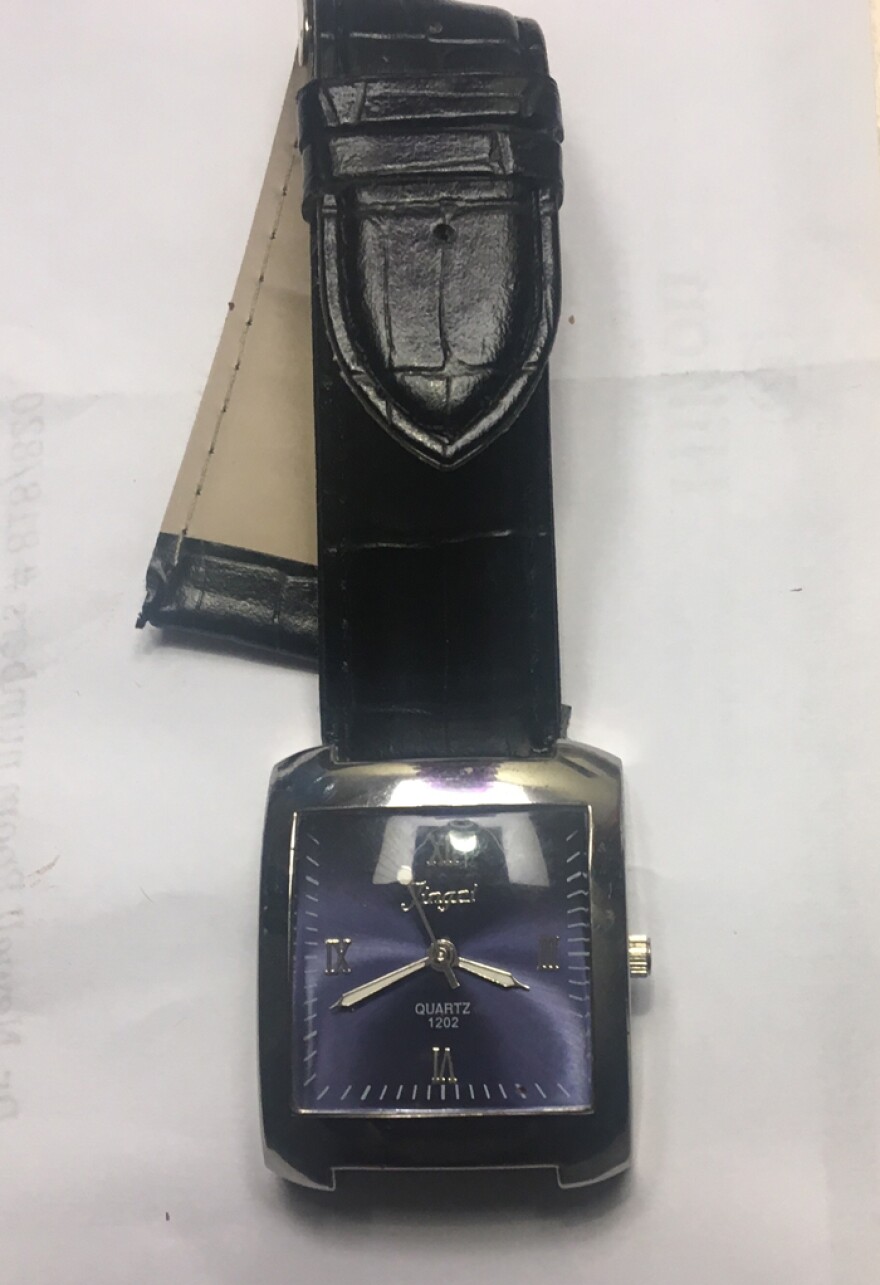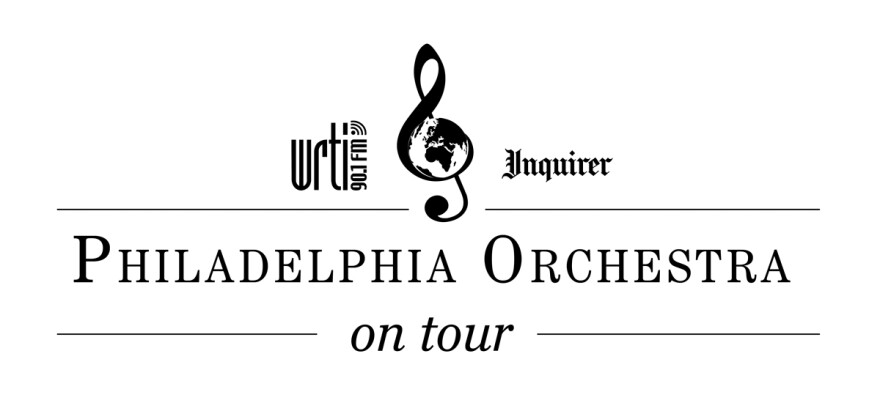[The Philadelphia Orchestra wraps up its 2018 Tour in Jerusalem. David Patrick Stearns has been covering the tour and we asked him, on this last stop, to give us his impressions of this ancient and modern, multicultural city.]
Jerusalem. It looks like a movie, but one that you're in. And—once in it—it seems to haunt you from within. Such is the first impression of Jerusalem, where the Philadelphia Orchestra ended its 2018 Tour of Europe and Israel.
Listen to The Philadelphia Orchestra's concert from Jerusalem on WRTI 90.1 on Wednesday, June 6 at 3 PM Philadelphia time with host Gregg Whiteside.
Tours usually leave no time for sightseeing; trying to do so anyway can be foolish because you end up exhausted, or even worse, hopelessly lost at a time when you should be on a bus headed toward the next concert hall.
Suddenly, the centuries fell away. I was transported back in time...
But between highly intellectual panel discussions at the high-tone King David Hotel and a concert at the all-too-modern ICC Center Jerusalem, I had a bit of time to go to the Old City, the place where so many of the Bible stories you learned as a child had taken place.
The easiest way to get there was through a modern shopping mall that makes you wonder if the Old City truly exists. The mall is all glossy and up-to-date, with coffee bars, sport clothes and marvelous street entertainers, including a man in traditional Jewish religious garb strumming an amplified guitar and singing the Beatles song "Let it Be."
Much more bizarre was a similarly dressed ventriloquist riffing on pop-culture references I can only guess at.
Then, I climbed a steep public stairway, proceeded over a highway overpass, and suddenly, the centuries fell away. I was transported back in time, way back, with ancient city walls very much intact, and acting as a gateway to a history that still seems to be a living thing, perhaps because this way of life has continued in various guises.
The electronic music of the shopping mall gave way to spartan strains of Arabic music with its tangy microtones. A few more steps and I heard something resembling klezmer, but maybe older.
A wide, winding avenue led to more fortress towers. Impressive yes, and picture worthy. People offered to take my photo in front of them, perhaps for a small fee. I wasn't going to hand my phone over to anybody I don't know.

I headed for the market place, with hundreds of sellers stuffed into tiny alcoves, up and down stone stairs with odd, winding avenues going to the left and right. "Avenues" isn't quite the right word. More like pathways with a progression of smells, from spices to perfumes.
Your buying priorities are naturally dictated by the thought of "Will I be able to get this home." I met a few cats that I'm sure would love to come live with me in the U.S., though I can't imagine how I would get them through passport control. So I settled on a watch dealer, who looked as if his merchandise hadn't been made anytime in the past 20 years. I like that.
Bartering is a local sport here, maybe even a way of life. For me, it's headache. Being on tour means always watching the time. Most human interactions on tour consist of exchanging information. Nothing personal. You're mobilized against doing anything extraneous.
So when the watch dealer—an older gentleman whose gnarled appearance suggested a long history of life difficulties—tried to get me to pay $60 for a handsome time piece, I didn't have time to haggle and headed up the stairs to the open square. He literally ran after me shouting the Israeli equivalent of $30. Sold. I paid, grabbed the watch, and ran for fear of missing the bus.
Then I realized that the watch didn't work.
Back at the King David Hotel, I was told by orchestra personnel that I had an hour longer than I thought. So I went back to the Old City. I decided that this watch dealer probably has a lot of harsh customers. So I was not going to be a bad-ass Philadelphian.
"Hi!" I said with a smile. "Can we make this work?"
"It needs a battery," he said.
I decided not to say that batteries are obligatory in new watches, at least where I come from.
He set to work on the time piece. I asked him questions, marveled at the dusty, grimy, eccentric clocks he had collected in his tiny alcove, and decided that I wouldn't worry about catching the bus. I relaxed for the first time in days.
I also noticed that he was quite bent over, not just because of age. One of his hands had been mangled—only a few of his fingers were functional —though many years in the past. Being a watch dealer can't be easy for him, though he was navigating everything successfully.

"This is a good watch," he said. I agreed.
"You're a good man," he said, half under his breath, changing the springs on the watch band to make it sturdier. He made eye contact.
"Thanks! You're a good man, too." He charged me an extra $5. Fine. I wanted to shake his bad hand but was afraid I would hurt him and didn't know if such things were done in Jerusalem.
An hour later, the watch band became unglued. Not his fault. He's still a good man. And the watch is still ticking.
David Patrick Stearns' coverage of The Philadelphia Orchestra on Tour is made possible by a partnership between the Philadelphia Inquirer and WRTI.



